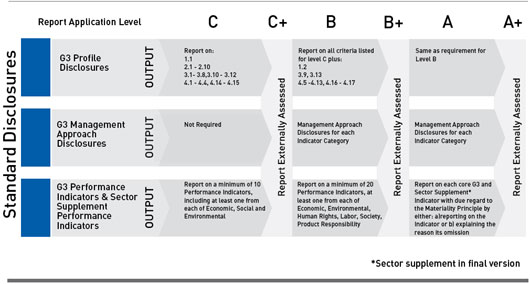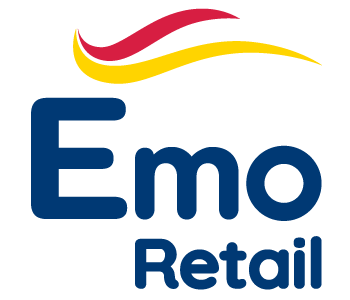Overview
Statement from the Chief Executive
For DCC, sustainability is a systematic approach to identifying and managing the key economic, social and environmental drivers that will ensure the resilience of our business and deliver long term sustainable shareholder value.
The Sustainability Committee has continued to focus on the aspects of sustainability that are material to the Group and our activities and performance in these areas is reported in more detail below. We are determined to ensure that sustainability is integrated into existing business processes, such as strategic planning and monthly reporting, and are working to identify how best to achieve this in the current year.
The talent, innovation and entrepreneurial flair of our employees have been essential to DCC’s strong growth and achievements to date. Their continued engagement, motivation and development will be fundamental to the future success of our businesses. We are currently developing Group wide metrics on this important aspect of our sustainability approach.
Health and safety receives significant management attention with regular monitoring and review of performance at all levels. We continue to improve management systems, provide appropriate training and raise safety awareness through promotional campaigns. We are pleased to report that both measures of lost time injury rates have decreased significantly since last year, but we are not complacent and zero lost time injuries remains our ultimate goal.
The long term impact of climate change is a global challenge. Government policies, customer concerns and extreme weather patterns impact consumption demand, global supply chains and commodity prices. Internally we rigorously monitor our operational carbon emissions and improve energy efficiency where cost effective and practical. We have retained our position in the Carbon Disclosure Project (CDP) Irish Climate Leaders index for the second year, based on our response to CDP’s investor questionnaire which covered all of the Group’s operations.
As a successful business, DCC makes a significant contribution to the economy, creating value which is distributed to stakeholders as outlined in the graphic on page 55.
The new version of the Global Reporting Initiative (GRI) Guidelines was published in May this year and the final version of an Integrated Reporting Framework is expected from the International Integrated Reporting Council (IIRC) later this year. The release of these standards will provide us with a timely opportunity to review the format of reporting to investors and other stakeholders.
Profile, Boundary and Scope of Sustainability Reporting
This Sustainability Report follows the same reporting cycle and fiscal year as the Annual Report, to 31 March 2013, and includes all Group subsidiaries. Joint ventures are not included in the carbon emissions or LTI data. There are no significant changes from previous reporting periods in the scope, boundary or measurement methods applied in the report and there is no restatement of data from the 2012 Sustainability Report. We continue to report consistently on those aspects of sustainability that are material at a Group level: people, health and safety, environment and economic contribution, as we have done for the past three years. Within these headings we report on key issues common to all of our businesses. Given the diversity of the Group’s business activities, at a subsidiary level some aspects may take on more importance than others, for example community relationships in a waste management business or product safety in a healthcare business.
The impact of new reporting standards from GRI and IIRC remains to be seen but they will certainly inform developments in corporate reporting into the future. Reflecting this trend towards integration, each divisional operating review in this Annual Report includes commentary on areas of sustainability relevant to their businesses and non-financial KPIs are included in the Group Key Performance Indicators.
This Report meets the requirements of the GRI level C+ standard, as identified in the content table on page 56 of the Annual Report. Summary criteria for the recording and reporting of lost time injuries and carbon emissions are available on the DCC website. Feedback on this Report is welcome and should be addressed to John Barcroft, Head of Group Sustainability or David Byrne, Deputy Chairman and Senior Independent Director.
Governance, Structures and Processes
The Sustainability Committee, chaired by the Chief Executive, met five times during the year. The Committee includes divisional and subsidiary managing directors and senior Group executives and is tasked with identifying how the concepts of corporate sustainability can be used to augment and strengthen our businesses.
During 2012, Forum for the Future1, was engaged to facilitate a workshop with the Sustainability Committee. The purpose was to develop a standard framework which provided a consistent, systematic approach to sustainability while at the same time being flexible enough to be applied at all levels across our diverse businesses.
The process of developing this framework, at Group and divisional levels, has confirmed the key values, enablers and aspects of our businesses and challenged us to set clear objectives to enhance them and to measure and report on their performance. Currently, the framework is being finalised and the outputs will be integrated into regular planning, budgeting and reporting processes in the current year.
Stakeholder Engagement
Stakeholder input is important to our work on sustainability and we welcome all opportunities to engage in that regard.
During the year we engaged with a number of shareholders and continue to benefit from their input and observations on sustainability reporting. In addition, we have begun to review the criteria set out by EIRIS who collect environmental, social and governance data for fund managers and other clients, including the FTSE Group for the FTSE4Good responsible investment index.
Sustainability is an agenda item at divisional and subsidiary board meetings and is the principal means of engaging with these management teams. As key stakeholders in our approach to sustainability, subsidiary management are essential to embedding the approach into business processes.
Material Aspects
Material aspects were initially determined in 2010 by the Corporate Sustainability Working Group (the forerunner to the Sustainability Committee), following consultations with senior executives around the Group. A materiality matrix, with levels of importance to stakeholders and to DCC forming the two axes, was used to rate a wide spectrum of sustainability issues, allowing those that ranked highly on both axes to be prioritised for reporting. Over time these have evolved and currently four key aspects – people, health and safety, environment and economic contribution – are considered to be material at Group level.
Divisions and individual subsidiaries have additional aspects that are of particular relevance to them dependent on their business sector – for example customer engagement, supply chains, employee training and development, waste reduction, water conservation and resource scarcity.

Notes:
1 Forum for the Future is a UK based independent, non-profit organisation who work internationally with businesses on strategies for sustainability.
